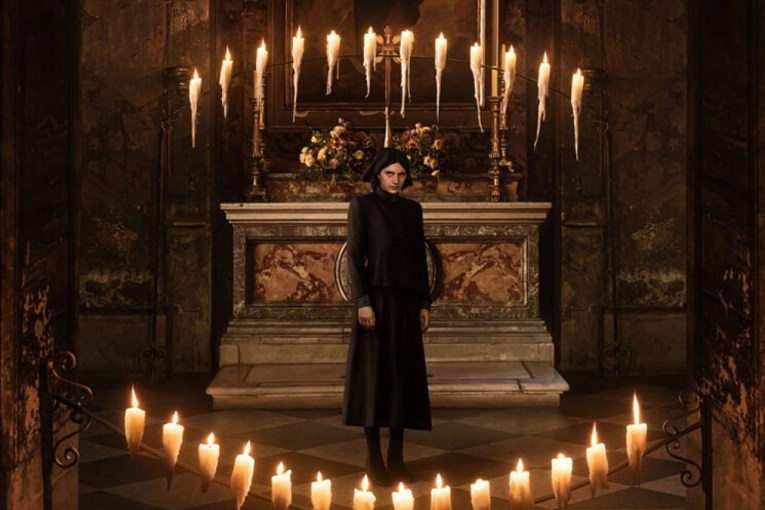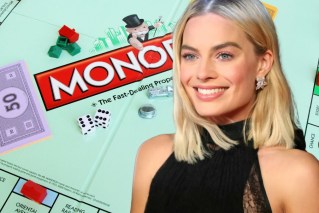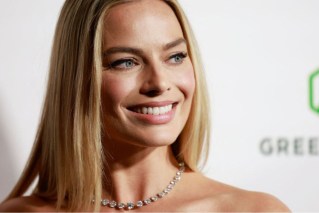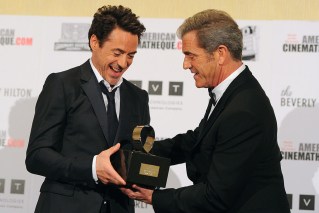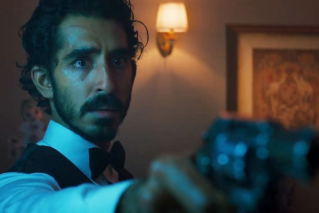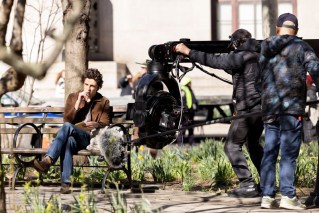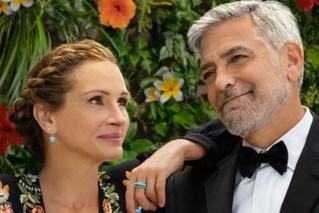How Peter Dinklage changed the conversation
At the Australian press day for X-Men: Days of Future Past, one radio presenter spent the bulk of his short window of time with Peter Dinklage discussing what it was like to be so close to Jennifer Lawrence wearing nothing but a blue leotard.
“You’re not going to out whacky him,” Dinklage said shortly afterwards.
By the end of the day, he was laughing to SBS that “I’m glad that the most major thing I’ve been talking about is my hair. All the hard work I’ve put in, it’s about my hair. I appreciate that.”

Peter Dinklage is a bona fide movie star – who just happens to be short statured. Photo: Esquire
His “evil Ron Burgundy” look as the villain Dr Bolivar Trask in the new film included a real moustache he confirms: “That is my caterpillar.”
Banal and bizarre though the conversation may seem, it represents a notable achievement.
Peter Dinklage has changed the conversation.
More than most film stars, Dinklage has gotten used to being stared at. It is a fact not only of his trade, but his life. He is a film star. And he is a dwarf.
The X-Men: Days of Future Past and Game of Thrones star was born nearly 45 years ago with achondroplasia, a common form of dwarfism. He then shot to fame as Finbar McBride in 2003’s The Station Agent a sleeper hit whose success he credits largely to Harvey Weinstein.
Since that time he has appeared in a range of films including as a cynical life coach to the hero in Peter Helliar’s romantic comedy I Love You Too, and as the gay lover to the deceased father in both the British and American versions of Death at a Funeral.
Then he took on the role of the imp Tyrion Lannister in the HBO adaptation of George R. R. Martin’s Song of Ice and Fire novel series and hit megastar status …
Then he took on the role of the imp Tyrion Lannister in the HBO adaptation of George R. R. Martin’s Song of Ice and Fire novel series and hit megastar status, swarmed by fans at comic conventions around the world.
Still the conversation was about his dwarfism. Read through his interviews and the theme plays through: Dwarfism and fame; Dwarfism and Hollywood; Dwarfism and sex symbol…dom.

As Tyrion Lannister in Game of Thrones. Photo: Supplied
Yes even when he was interviewed by Playboy, he was asked about girls and height. “They’ll say, ‘Oh, he’s sexy,’ but women still go for guys who are 6-foot-2,” said the happily married actor. “It’s nice that people are thinking outside the box, but I don’t believe any of it for a minute.”
Finally, by the time he reached Australia, Dinklage was officially bigger than his height. Moustaches and blue co-stars were the order of the day.
Now he has a new challenge. If in taking on the role of Trask, he was pleased that the part was “not written to be a dwarf,” he’s also pleased it’s not written like a villain.
“He’s not your typical superhero comic book villain,” says Dinklage. “Usually the villains in these films are a bookend to the superhero. They have competitive bits of each other in each other. They’re both usually outsiders. Both usually nut cases basically.
Dinklage loves the notion that perhaps Trask isn’t actually a villain. Like Jessica Rabbit, he’s just drawn that way.
Dinklage loves the notion that perhaps Trask isn’t actually a villain. Like Jessica Rabbit, he’s just drawn that way.
“The Joker. Lex Luthor. They’re out for pure anarchy. This guy wears a suit to work. He has a great job and he’s very influential politically. Basically what he’s proposing is to save humanity. Which is the opposite of other villains in these movies. They’re out to destroy it. I’m here to save it.”
“On the other side of the coin, it means destroying the mutants. If you consider that villainous, yes [Trask is the villain], because the mutants happen to be the heroes of the film.”
It’s a fun, rather than important issue for Dinklage. Unlike Game of Thrones which he came to unawares – “I had no idea those novels even existed” – and where the writing was what swayed him, he was already a big fan of The X-Men when Bryan Singer approached him.
“I would have served coffee on this movie,” he jokes. “I’m such a big fan of the earlier films and it was such a bonus to be offered the part of the villain.
It is perhaps no surprise that the X-Men appeals to Dinklage. It is a comic book series that has long appealed to anyone labeled different.
“They’ve always been – from the 1950s onward – always very relevant,” he says. “Maybe not taken as seriously as other things because they were more geared to a younger audience, or what have you, but if you start reading them, they’re completely relevant and have always been dealing with the darker elements.
“Bryan Singer’s first X-Men I feel was the first comic book movie that gave the comic book collectors what they’d been waiting for: The darker themes, death and internal conflict.
“Also what I love about these X-Men movies: It’s an ensemble of characters. Usually it’s just one superhero, one villain. This is a whole bunch of them. It’s just fascinating.”
No matter his fate in this movie – and that’s not to say it’s good or bad – in a franchise universe featuring mutants, flashbacks and time travel, any character can return. So will Dinklage’s Trask return?
“We have the advantage that people are familiar with Trask who are fans of the X-Men series and the comic books they’re based on,” he notes suggestively before adding “and maybe we’ll see more of him.”
